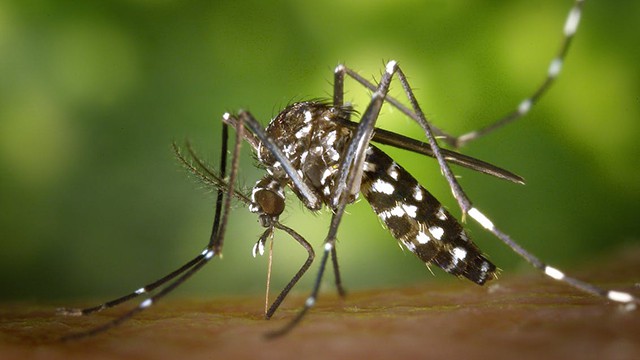West Nile Positive Mosquitoes Found in Two Brampton Neighbourhoods
Published October 2, 2017 at 7:13 pm

“This case reinforces the need for all residents to protect themselves from mosquito bites,” said Callanan. “Most people who contract the disease will show no symptoms, but 20 per cent will experience mild flu-like symptoms, and about one in 150 people will develop a more severe form of the disease.”
Residents are encouraged to protect themselves from mosquito bites by doing the following:
- Avoid areas with high mosquito populations and take extra precautions at dusk and dawn when mosquito activity is highest.
- Wear light-coloured clothing that covers exposed skin, such as long sleeves, pants and a hat.
- Use an insect repellent containing DEET and apply it according to the manufacturer’s directions.
- Remove or drain items on your property that hold stagnant water. Water that is stagnant for more than seven days is an ideal breeding site for mosquitoes. You can report stagnant water sites to Peel Public Health at 905-799-7700 or online at peel-bugbite.ca.
- Register online at peel-bugbite.ca to receive email notifications and information about where mosquitos that have tested positive for West Nile virus found in Peel.
Although many people show no symptoms, those who do might experience fever, headache, body ache, nausea, vomiting and a rash on their chest, stomach or back. Some people experience more serious symptons, including high fever, severe headache, muscle weakness, neck stiffness, confusion, tremors, numbness and sudden sensitivity to light.
If you have bitten by a mosquito and feel ill, contact your doctor.
